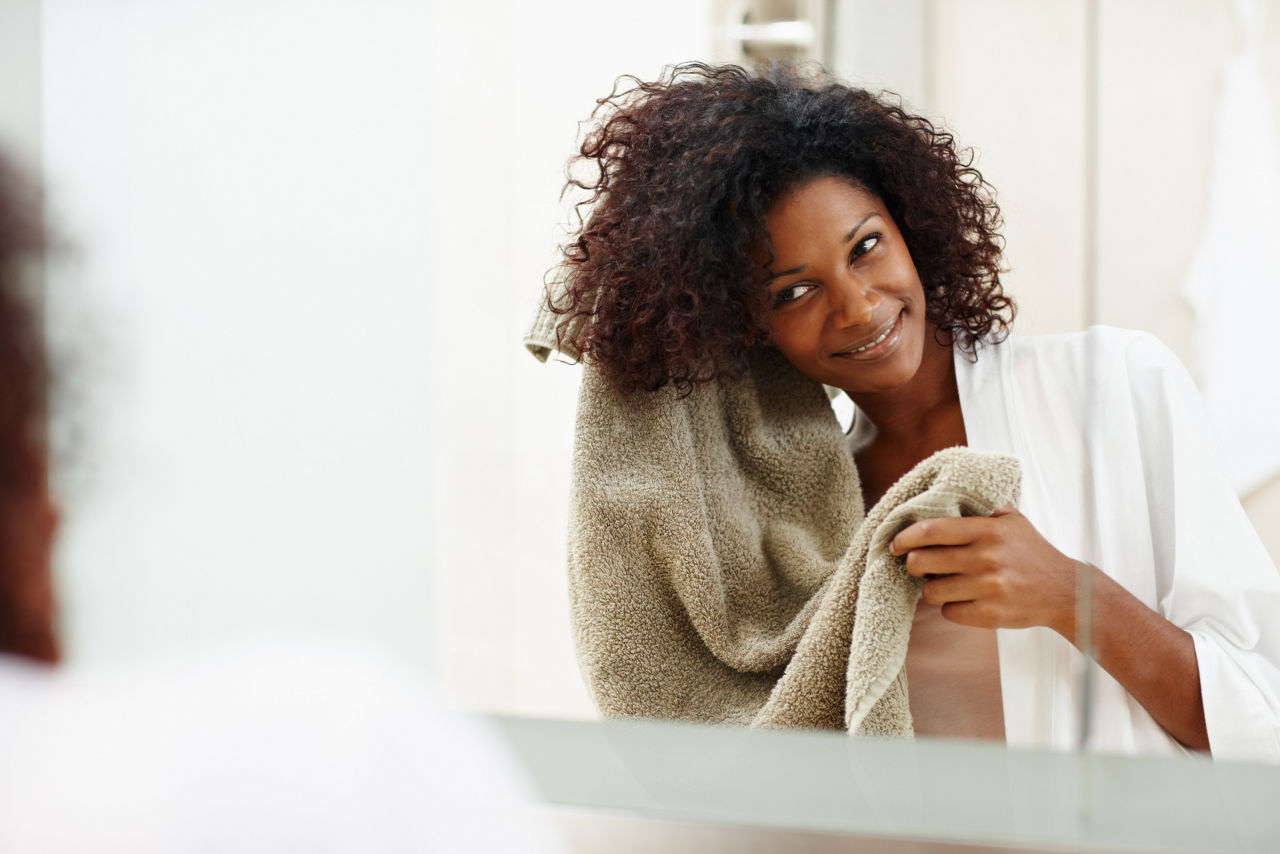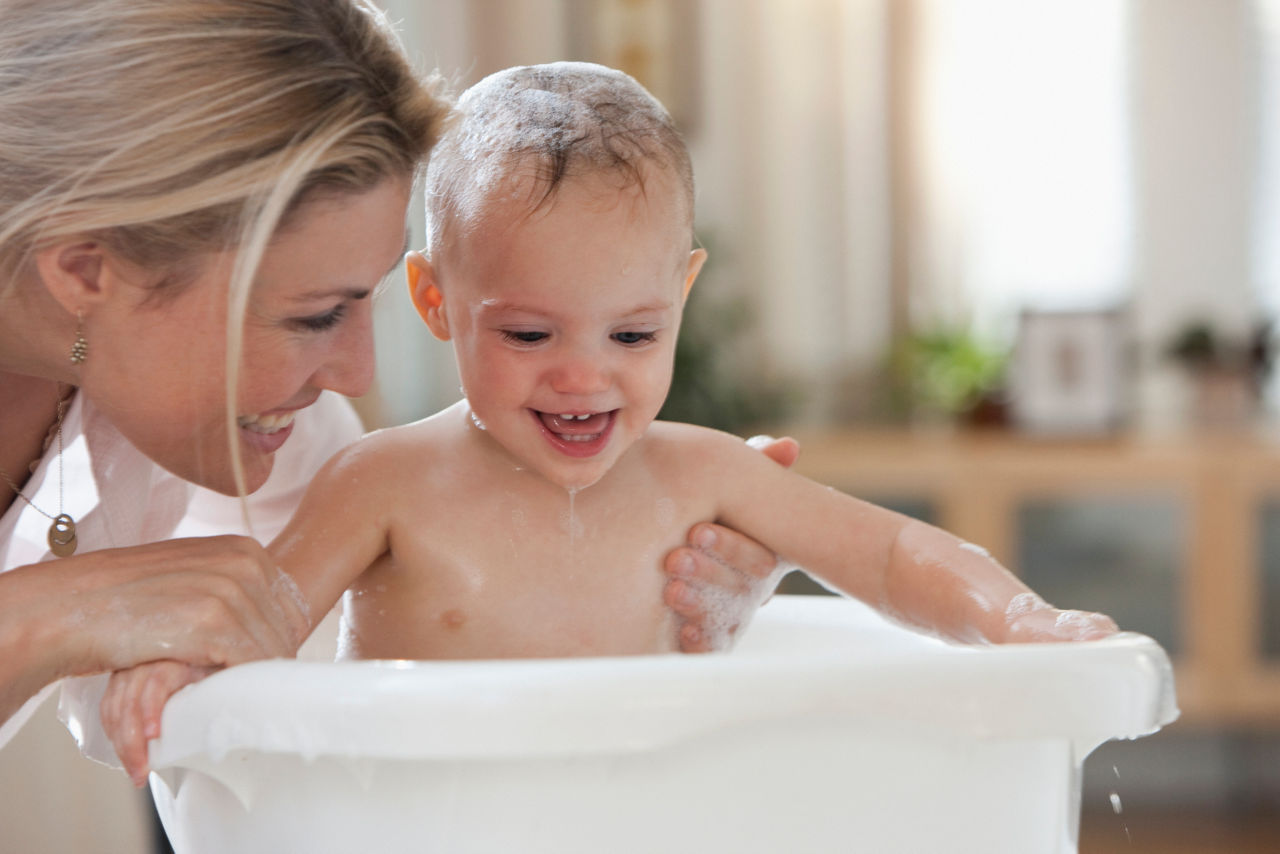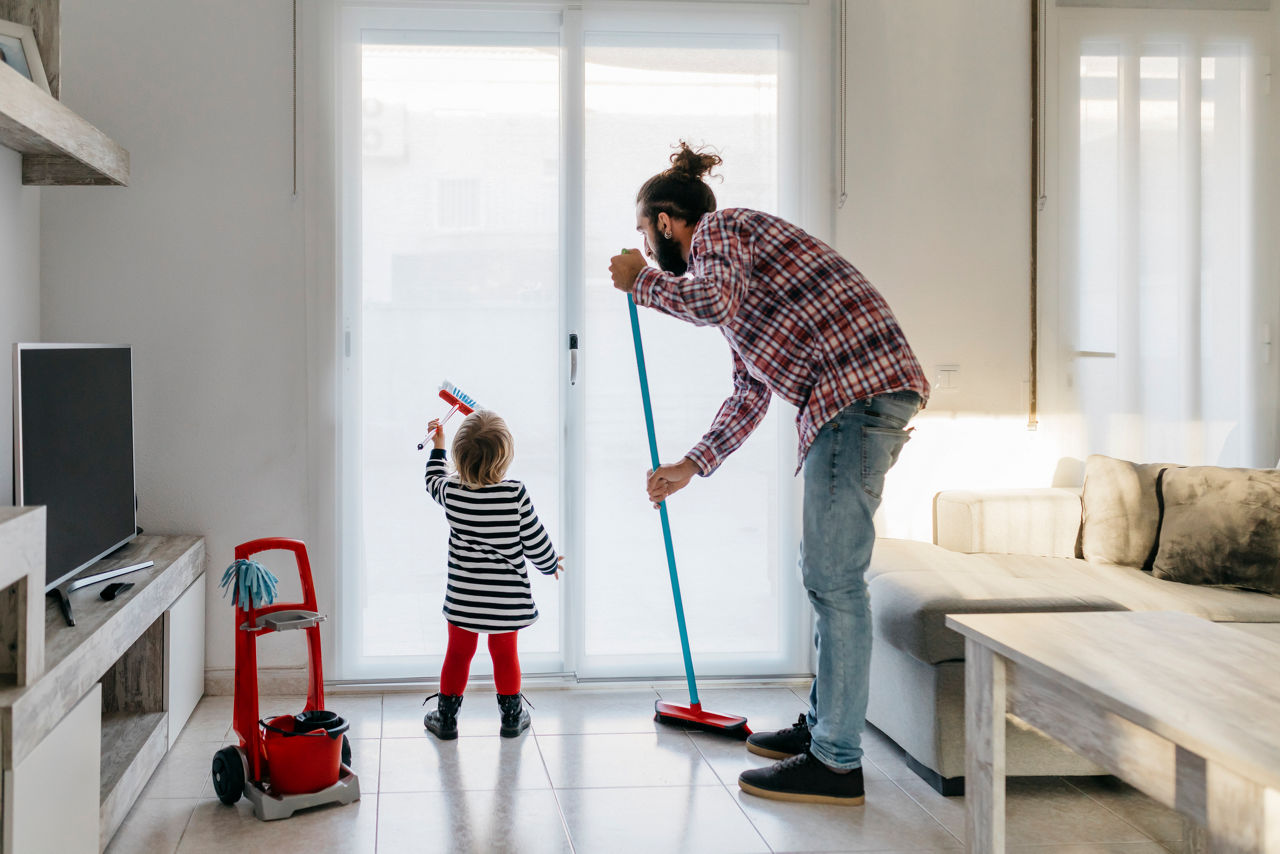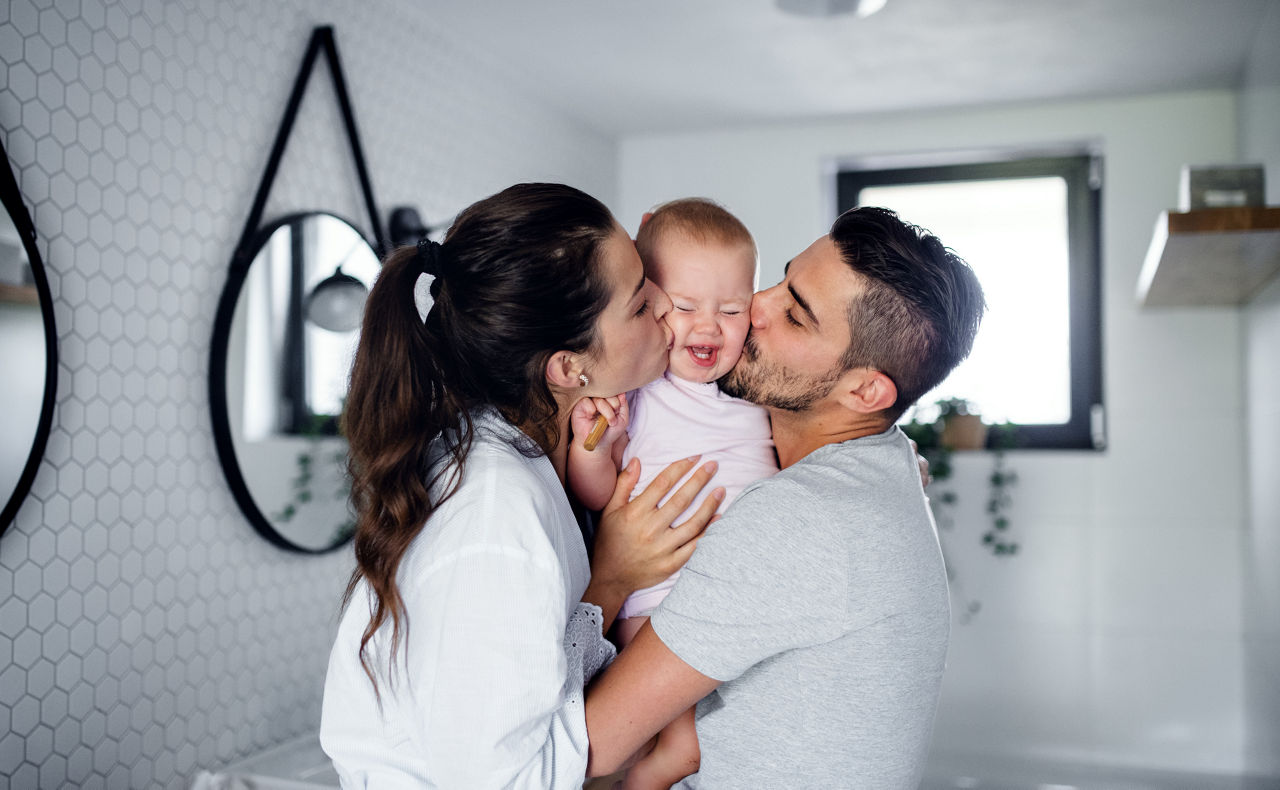Breastmilk is the best for babies. The World Health Organisation recommends exclusive breastfeeding for the first six months of life. Unnecessary introduction of bottle feeding or other food and drinks will have a negative impact on breastfeeding. After six months of age, infants should receive age-appropriate foods while breastfeeding continues for up to two years of age or beyond. Consult your doctor before deciding to use infant formula or if you have difficulty breastfeeding.
Babies explore their world through their senses: touch, taste, smell – these all channel information - that helps babies get to know their environment. That’s why hygiene is of the utmost importance, now more than ever. Here are some easy-to-follow rules of proper hygiene to support your baby’s health.

Hygiene Rules Start with Parents
Babies, especially newborns, interact mostly with their parents. They may be breastfed, cuddled constantly, and have their diapers changed day and night. That’s why parents need to be extra vigilant when it comes to hygiene for their own health and that of their little one.
Wash your hands thoroughly and often and keep your nails short. Shower every day to ensure overall hygiene.
Breastfeeding mothers should keep their usual habits and shower every day. Before each feed, it is important to wipe one’s breasts clean and change and wash breast pads frequently. After breastfeeding, breasts can be cleaned with breast milk.
It’s important that Parents’ clothes are always clean. It is advised to change out of “outdoor” clothes into “indoor” clothes, as soon as one comes home.
Hygiene of the Baby
Nothing smells as sweet as a baby! However, a daily bath is not only essential to a baby’s overall hygiene, it’s also an important moment for family bonding, vital skin-to-skin contact and play. Before bedtime, a nice tranquil bath is a sure way to calm them down before sleep.
During the bath, it is advised to use special baby shampoos and soaps that are gentle on a baby’s sensitive skin and that are alcohol, paraben and SLS free.

Newborns cannot be bathed, as a damp umbilical cord can become infected. Until the umbilical cord falls off, the baby can be wiped with a clean face cloth soaked in warm water.
But remember: A baby’s environment needs not be sterile. Contact with microbes and bacteria is important as it develops their immune system, which needs to build up its response system by fighting them off. A strong immune system may also ward off illnesses and diminish the likelihood of developing allergies.
Confined at home, you need not worry if they’re in contact with pets or if your baby gets his or her hands into your potted plants. Daily discoveries like these give a baby’s immune system a boost and helps them explore and learn more about their world.
Babies discover their world through their sense of touch, and they tend to touch their faces constantly. They also suck their fingers and thumbs, especially during teething, to soothe themselves. For this reason, stay attentive to your baby’s hand hygiene and nail care.
Babies sweat a great deal, and as you may have noticed, they can also regurgitate or vomit a small amount of milk during or just after a feed until about 6 months of age! Their hands are constantly on the floor, or in their mouths. When they start to crawl, their clothes get even dirtier, and so washing them frequently is essential. Their clothes can be changed up to 2 or 3 times a day. Given the potential for spills, leaks or other accidents, it’s good to be prepared with spare clean clothes on hand.
To ensure optimum hygiene, and avoid diaper rash or other skin irritations, diapers need to be changed frequently.

How to Provide a Hygienic Environment for Babies?
Keeping a clean home is essential for your baby’s hygiene and your own. Pay special attention to the following areas for an optimal environment.
Proper ventilation is very important. Air out your baby’s room daily, as all other rooms or spaces in the house.
Clean floors are crucial, especially when your baby starts to crawl. Always use non-toxic, non-chemical products to clean floors, carpets and other surfaces, as a baby’s hands will invariably end up in his or her mouth.
Absolute hygiene is required for toilet seats, bathroom floor and bathtubs, including the baby’s tub. Crawling babies come into contact with all of the above and their little hands can easily transfer bacteria to their mouths.
Always dispose of the used wipes directly after the cleaning. It’s essential that cleaning wipes be separated according to their usage areas.
Try to keep baby´s clothes in a separate laundry basket and washed with a detergent that is suitable for a baby’s gentle skin.

Connect with our team of experts
We provide advice and support for you on your parenthood journey



